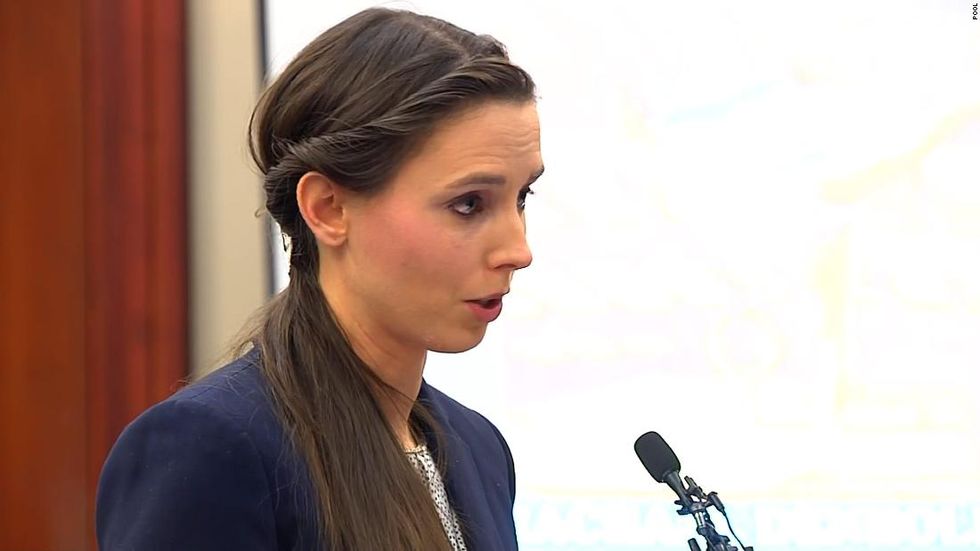Following the Larry Nassar case as it unfolded last week, one could not help but be struck by listening to some of the statements from the more than 150 women and girls who confronted Nassar in court. As mentioned in the media and other articles here on Odyssey, all of these statements are extremely powerful and courageous, and the women who made them even more so.
Former gymnast Rachael Denhollander was the first woman to publicly accuse Nassar in 2016, and in last week's court room, she was the last to offer a victim impact statement. She personally paid a high price to speak out, and last week’s court case only gives us, the public, a mere glimpse into grasping Rachael’s and all of the victims’ experiences and feelings.
Although Rachael’s victim statement was addressed to Nassar and Judge Rosemarie Aquilina, and as encouragement to all of the victims in the courtroom, it has been heard around the world as a testimony of what it looks like to step out in faith. Below is a brief summary of her statement and some of the most powerful quotes. You can read her full statement here, or watch it on YouTube.
Rachael spoke powerfully and profoundly to Judge Aquilina, explaining her plea and why Larry should receive the strongest sentence possible under the law. She spoke to Michigan State University directly about their mishandling of both her reports and the many reports that came before hers, and because of the failure of the adult leaders to listen to these girls coming forward, how it has forever affected her.
"And because of this willful ignorance...I walked through Larry's door in 2000 and never walked out the same."
She speaks about moving from athlete to coach, and how she feared and cried for one of her girls that was sent to Nassar before she could do anything about it. She speaks about going to law school, and the trauma she experienced when studying crimes related to sexual assault. She speaks of getting married and starting a family, and how her experiences in Nassar’s office still followed her far into adulthood.
"I became a mother three times over, and the fear that hung over each birth knowing I would be vulnerable in a medical setting cast a horrific shadow over what should have been an occasion of pure joy."
And then, she addresses Larry directly, saying: “you brought your Bible into the courtroom and you have spoken of praying for forgiveness. And so it is on that basis that I appeal to you.” She goes on to say:
"Should you ever reach the point of truly facing what you have done, the guilt will be crushing. And that is what makes the gospel of Christ so sweet. Because it extends grace and hope and mercy where none should be found. And it will be there for you."
"I pray you experience the soul-crushing weight of guilt so you may someday experience true repentance and true forgiveness from God, which you need far more than forgiveness from me -- though I extend that to you as well."
"Larry, I can call what you did evil and wicked because it was... and I can call it evil because I know what goodness is. And this is why I pity you. Because when a person loses the ability to define good and evil, when they cannot define evil, they can no longer define and enjoy what is truly good."
Rachael’s words speak of forgiveness and mercy, even in the most awful circumstances. Although Nassar’s actions are in no way justified, it shows that somehow, amongst this, there is hope for everyone involved. And now, it’s time to move forward.
Even though the court case is over and Larry Nassar has been sentenced up to 175 years in prison, the situation is nowhere near finished. The fight against sexual assault in today’s society, in some regards, is just beginning.
As written in an op-ed piece in the "New York Times," Rachael remarks that the first step towards changing the culture around sexual abuse it to hold not just the abuser, but all enablers of abuse accountable. This includes removing limitations and strengthening reporting laws in legislation.
Rachael says: “Most important, we need to encourage and support those brave enough to speak out.” She explains that too often, “our commitment to our political party, our religious group, our sport, our college or a prominent member of our community causes us to choose to disbelieve or to turn away from the victim.” She explains that fear of jeopardizing these areas of our lives leads to willful ignorance, at the cost of an innocent victim, a vulnerable child.
Finally, Rachael challenges us all to ask ourselves: "How much is a child worth?" She goes on: "Every decent human being knows the answer to that question. Now it is time to act like it."
Rachael, we hear you, and we recognize the price you paid to speak publicly about what happened to you. As we work together to heal the wounds and shift the culture, we hope you, and all the woman who spoke out, may feel a peace that surpasses all understanding, and stand victorious.


















